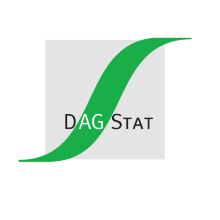Junior Research Group Leader Paul-Christian Bürkner whose research focuses on Bayesian Statistics will give a contributed talk at this year’s DagStat. The sixth conference of the German Consortium in Statistics will take place in Hamburg from March 28th until April 1st 2022 and focuses on “Statistics Under One Umbrella: Mind the Gap – Interplay Between Theory and Practice”.
The talk on „The sparse Polynomial Chaos expansion: a fully Bayesian approach with joint priors on the coefficients and global selection of terms” is about an upcoming SimTech paper with Ilja Kröker, Sergey Oladyshkin and Wolfgang Nowak
Abstract: Polynomial chaos expansion (PCE) is a versatile tool widely used in uncertainty quantification and machine learning, but its successful application depends strongly on the accuracy and reliability of the resulting PCE-based response surface. High accuracy typically requires high polynomial orders, demanding many training points especially in high-dimensional problems through the curse of dimensionality. So-called sparse PCE concepts work with a much smaller selection of basis polynomials compared to conventional PCE approaches and can overcome the curse of dimensionality very efficiently, but have to pay specific attention to their strategies of choosing training points. Furthermore, the approximation error resembles an uncertainty that most existing PCE-based methods do not estimate. In this study, we develop and evaluate a fully Bayesian approach to establish the PCE representation via joint shrinkage priors and MCMC. The suggested Bayesian PCE model directly aims to solve the two challenges named above: achieving a sparse PCE representation and estimating uncertainty of the PCE itself. The embedded Bayesian regularizing via the joint shrinkage prior allows using higher polynomial degrees for given training points due to its ability to handle underdetermined situations, where the number considered PCE coefficients could be much larger than the number of available training points. We also explore multiple variable selection methods to construct sparse PCE expansions based on the established Bayesian representations, while globally selecting the most meaningful orthonormal polynomials given the available training data. We demonstrate the advantages of the our Bayesian PCE and the corresponding sparsity-inducing methods on several benchmarks.
For more information about Paul-Christian Bürkner click here. For more information about his research see https://www.simtech.uni-stuttgart.de/exc/research/junior-research-groups/bayesian-statistics/.
The Deutsche ArbeitsGemeinschaft Statistik (DAGStat) is a consortium of scientific societies and professional associations that regard the further development of statistical theory and methodology as their primary scope of duties. The DAGStat was founded in 2005. Its declared purpose is to connect scientists who are working with statistical methods, to offer them an open and productive platform and to increase public awareness about statistics


